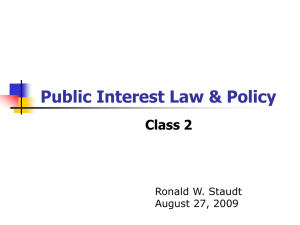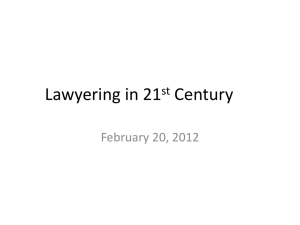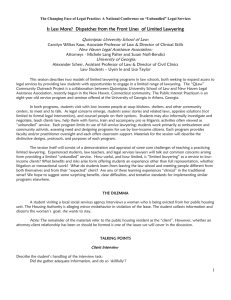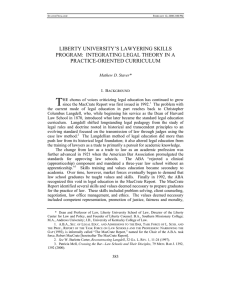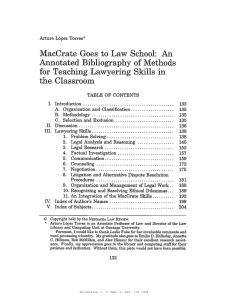Class Oultine used this year - Chicago
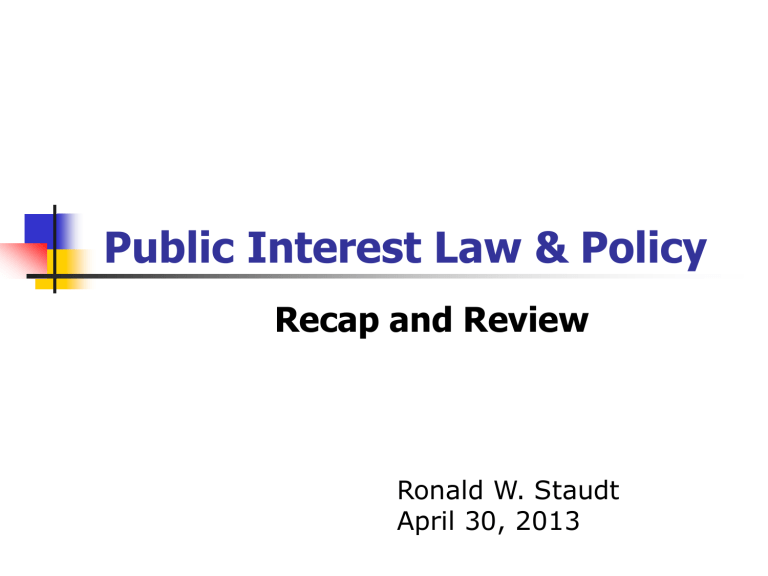
Public Interest Law & Policy
Recap and Review
Ronald W. Staudt
April 30, 2013
Public Interest Law & Policy
What is Public Interest Law?
New Lawyers- - Student Note - -1970
Process v. preferred interests
Rabin’s article– 1976
Change through litigation—not OEO or PDunderrepresented but selective about interests…
Southworth’s study of the right—2005
Right to work, right to life, Midamerica…
Courts and social change
“American courts are not all-powerful institutions.
They were designed with severe limitations and placed in a political system of divided powers. To ask them to produce significant social reform is to forget their history and ignore their constraints. It is to cloud our vision with a naive and romantic belief in the triumph of right over politics. And while romance and even naivete have their charms, they are not best exhibited in courtrooms.”
Gerald N. Rosenberg, The Hollow Hope, Can Court Bring About Social
Change? 2d Edition. U of C Press, 2008
Career satisfaction
“…alienation and anxiety about the nature of lawyering work do not affect all lawyers equally. For those whose idea and practice of lawyering involves service to a cause, many of the symptoms of alienation and anxiety are absent.”
Scheingold and Sarat, Something to Believe In, Stanford U. Press,
2004
.
Waiting for Gautreaux
---Alexander Polikoff
“What would I say to the law students today…”
Your questions about public interest law and lawyering--
Substantive law and public interest:
What do you think of the Hope VI program and the current direction of public housing in Chicago, and nationally?
Client Autonomy and Cause Lawyering
Can you talk about your current thoughts about the fact that
Dorothy Gautreaux and the other class representatives and
Chicago’s black community groups did not get involved in the decisions you describe in the case, like the Model Cities issue or the decision to appeal or not to appeal major rulings?
Your questions about public interest law and lawyering--
Litigation as a tool for social change -
Can it work? Can judges administer major transformations without administrative resources?
Problems facing us today: how would you try to address the problem of gun violence in the city .
In light of the Sandy Hook School shooting and other mass shootings that have occurred recently in the United States, do you think that an increase in mental health care benefits might alleviate some of the crime/violence in the United States or even further rehabilitate Chicago's ghettos?
Perspectives on careers and tactics
Gendered Lives of Legal Aid: Law, Social Work and the Poor
Professor Felice Batlan
Create Your Own Public Interest Career
Chris Williams and Sarah Kaplan
Fee Shifting
Josh Karsh
Qualified Immunity, Longterm Strategies, and Partial Victories
Professor Carolyn Shapiro and Diane Redleaf
Public Interest and Government Lawyering
Benjamin C. Weinberg
Public Interest and Collaboration: Medical/Legal Partnerships in Illinois
Professor Alexander Boni-Saenz
Perspectives on
Public Interest law and tactics
Arthur LaFrance
Public interest law and lawyering
Patrick Murphy
Social Change and litigation
Josh Karsh
Tactics in discrimination class actions
John Bowman
Lobbying and legislative advocacy
William Birdthistle
Legal theory and social change
Your Case Studies
Goldberg v. Kelly due process, welfare benefit termination
Boddie v. Connecticut due process, access to justice, filing fee waiver
Lewis v. City of Chicago racial discrimination in hiring, firefighters
Hobby Lobby Stores v. Sebelius
1st Amendment -Free exercise, ACA, access to contraception
Citizens United v. Federal Election Commission
1st Amendment and campaign finance
Legal Services Corporation v. Velazquez
1st Amendment and federal legal aid funding restrictions
Final task- the exam
Enrich the website with a web of annotated links.


